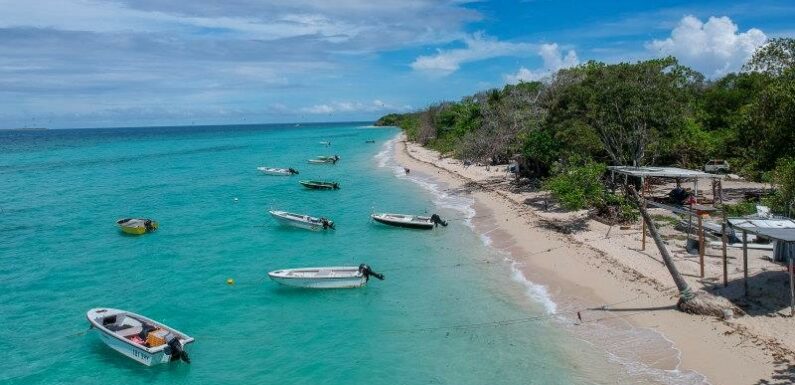
A group of eight Torres Strait Islander people have made international legal history after the UN Human Rights Committee found that the Australian government has violated its human rights obligations to them through climate change inaction.
The landmark decision was delivered by the committee late last week and agreed with a complaint first filed by the group in 2019. The complaint was the first legal action brought by climate-vulnerable inhabitants of low-lying islands against a nation-state.
Saibai Island’s $24 million sea wall was breached less than six months after its completion. During storm surges, the sea sluices under homes.Credit:Justin McManus
Yessie Mosby, a Kulkalgal man and traditional owner on the island of Masig, said he was delighted that Torres Strait Islander voices and concerns were being heard around the world through the case.
“Climate change affects our way of life every day. This win gives us hope that we can protect our island homes, culture and traditions for our kids and future generations to come,” Mosby said.
The Torres Strait Islanders – also known as Zenadh Kes people – claimed that climate crisis changes and subsequent changes in weather patterns had direct and harmful consequences on their livelihood, culture, and traditional way of life.
Many Zenadh Kes people fear that without urgent action, their islands could become uninhabitable within their own lifetime.
“This is about protecting our culture and identity. Our people living in the low-lying islands have been struggling and suffering because of climate change and the decisions of others,” Nazareth Fauid, another of the claimants, said.
The claimants argued that severe flooding caused by tidal surges had destroyed family graves and left human remains scattered across their islands. Maintaining ancestral graveyards and visiting and communicating with deceased relatives are at the heart of Zenadh Kes cultures, the group of traditional owners said.
The UN committee has now asked the Australian government to pay compensation to the claimants and ensure the safe existence of the islands. The committee’s decision is not legally binding; however, Australia is a party to the optional global human rights treaty, the International Covenant on Civil and Political Rights.
In its decision, the committee agreed with the complaint stating that climate change was currently impacting the claimants’ daily lives to the extent that their rights are being violated, and that Australia was breaching its human rights obligations by failing to cut its greenhouse gas emissions quickly enough.
The committee also found that Australia’s poor climate record is a violation of the right to family life and right to culture under the global human rights treaty, the International Covenant on Civil and Political Rights.
The former federal Coalition government led by Scott Morrison had previously made two submissions to the UN arguing that the complaint should be dismissed, after committing $25 million to the region to address urgent issues related to climate crisis in early 2020.
Following a change in government, new prime minister Anthony Albanese, Climate Change Minister Chris Bowen and Senator Jana Stewart met with the traditional owners during a visit to the Torres Strait in July.
The UN committee’s decision marks the first time an international tribunal has found a country has violated human rights law through inadequate climate policy, and the first time that peoples’ right to culture has been found to be at risk from climate impacts.
Professor Justine Nolan, director of the Australian Human Rights Institute said the decision of the committee was not legally binding and there was no enforcement mechanism.
“Australia does generally follow and comply, but if it doesn’t it may experience public pressure and reputational pull,” she said. “What the decision from the committee does do is trigger a government obligation to engage with the issues faced by the people in the Torres Strait. It also gives moral authority to the Torres Strait Islander claimants.”
Attorney-General Mark Dreyfus said the Albanese government was committed to working with Torres Strait Islanders on climate change.
This area used to be cultivated for cassava, yam and taro, but has been rendered unusable by sea water.Credit:Justin McManus
“Soon after the change of government, the prime minister, the minister for Indigenous Australians and the minister for climate change and energy travelled to the Torres Strait to talk with elders and owners about the impacts of climate change on them,” he said.
“This complaint to the UN Human Rights Committee was made in 2019. Australia’s submissions in response to the complaint were made under the previous government. The Committee has now issued its views on the complaint.
“The Australian government engages in good faith with the Human Rights Committee in relation to any complaint received.
“The Australian government is considering the committee’s views and will provide its response in due course.”
The victorious islanders have vowed to build on the win and later this year will present a petition to the federal government containing more than 47,000 signatures calling on it to take urgent action to address the findings of the committee.
The Morning Edition newsletter is our guide to the day’s most important and interesting stories, analysis and insights. Sign up here.
Most Viewed in National
From our partners
Source: Read Full Article

